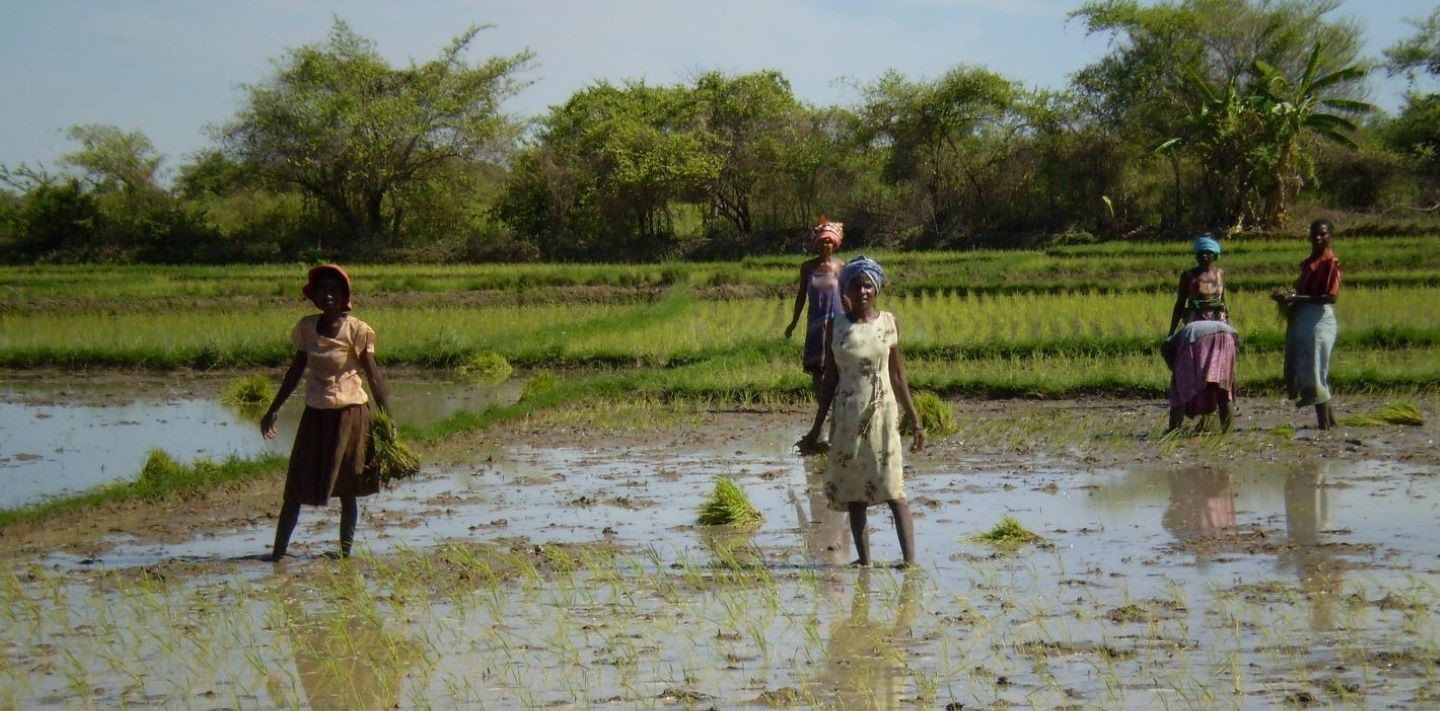IFAD €3.5 million loan to promote women-led agribusiness in Madagascar and support small-scale farmers
IFAD Asset Request Portlet
Asset Publisher
IFAD €3.5 million loan to promote women-led agribusiness in Madagascar and support small-scale farmers
13 June 2022
Rome – 13 June 2022 - As agricultural small and medium-sized enterprises (SMEs) in low-income countries struggle to finance growth, the UN’s International Fund for Agricultural Development (IFAD) is stepping up its commitment to assisting these essential players for rural development with a new €3.5 million loan to SOAFIARY, an innovative women-led agribusiness from Madagascar.
IFAD’s loan will help SOAFIARY grow sustainably and reorient their business model, by increasing from 30 to 70 per cent its direct sourcing from small-scale farmers. This assistance is expected to attract a further €4.7 million in co-financing, benefitting approximately 20,000 rural people directly over a four-year period (2022-2025).
“SOAFIARY has shown a commitment to working with smallholder farmers to help them improve their livelihoods and communities, as well as creating economic opportunities and jobs for women,” said Thouraya Triki, Director of IFAD’s Sustainable Production, Markets and Institutions division. “Agribusinesses like SOAFIARY need this game-changer financial support to make an impact on poverty reduction, food security and rural transformation.”
Agricultural SMEs are a major source of employment in Madagascar, where 85 per cent of the rural population lives in poverty. However, they often face an insurmountable obstacle when it comes to financing scale-up operations, as the market does not generally offer SMEs the countercyclical and long-term financial products they need.
“IFAD’s support allows us to go to scale, while providing great support to small-scale farmers and contributing to building sustainable and resilient food markets across the centre south of the island,” said Rabenoro Malala, who, together with her husband, is the founder and main shareholder of SOAFIARY, the Malagasy agribusiness that features 80 per cent of female staff.
SOAFIARY will scale up its base of suppliers from 1,000 to 5,000 farmers, expecting to purchase an estimated 15,000 tons of produce by 2025. Small-scale farmers’ revenues are projected to increase by 30 per cent.
Contract farming: fairness and sustainability
Small-scale farmers and SOAFIARY will engage through contract farming, a written agreement between sellers (farmers) and buyers (agribusinesses) on the terms and conditions for the production and marketing of agricultural products.
Contract farming benefits small-scale farmers by ensuring sales, access to markets and support to their production in various ways, while agribusinesses guarantee their supply under conditions that also suit them.
Under this arrangement, the Malagasy company will provide an all-inclusive service delivery, including the provision of high-quality inputs, training, premium purchase price and marketing support to small producers organized in farmers’ organizations.
Razafarinirina Lanto is a mother of six and a smallholder farmer, who has been engaged in contract farming with SOAFIARY. “Contract farming is beneficial for us because it provides a stable market with fair prices but without middlemen. This partnership allows us to produce more and increase our income,” she said. Lanto has doubled her production of maize, beans and rice since she started working with the Malagasy company now supported by IFAD.
“This support means well-being for the family as it helps us meet our basic needs such as daily food, schooling and medical care. We can even start building our own house,” said Rasoamalala Lucie. SOAFIARY’s support has helped her move away from subsistence agriculture to producing a significant surplus.
Women - and youth - headed households will be prioritized among the small-scale farmers contracted in the provinces of Bongolava, Haute Matsiatra, Ihorombe, Itasy, Menabe and Vakinankaratra.
Two thousand small-scale farmers will attend specific training on climate-smart agriculture techniques and harvesting methods, as well as to learn how to make efficient use of soil and inputs.
Engaging with the private sector, doubling IFAD’s impact
This loan is part of IFAD’s efforts to increase private investments to address market gaps in the finance sector in low-income countries. In Madagascar, for instance, only 14.5 per cent of SMEs have a bank loan or line of credit, compared to 31.4 per cent worldwide, owing to a highly concentrated banking sector characterized by high collateral requirements.
SMEs, farmers’ organizations and financial intermediaries servicing small-scale farmers, which are often neglected by investors, receive direct support from the Fund through a specific Private Sector Financing Programme (PSFP) that provides loans, risk management instruments (such as guarantees), and equity investments.
This programme reflects IFAD’s ambitions to double its impact by 2030 toward hunger and poverty eradication by attracting potential private investors in agriculture and rural economies. In this particular case, Investisseurs & Partenaires (I&P), a French-based impact investor, which already holds shares in SOAFIARY, has committed to continue investing in the Malagasy company.
In 2019, IFAD amended its founding agreement to enable the Fund to invest directly in private sector entities. Previously, IFAD only channelled investments to rural areas through governments.
Press release No.: IFAD/28/2022
IFAD invests in rural people, empowering them to reduce poverty, increase food security, improve nutrition and strengthen resilience. Since 1978, we have provided about US$ 23.2 billion in grants and low-interest loans to projects that have reached some 518 million people. IFAD is an international financial institution and a specialized United Nations agency based in Rome – the UN’s food and agriculture hub.
A wide range of photographs of IFAD’s work in rural communities are available for download from its Image Bank.
